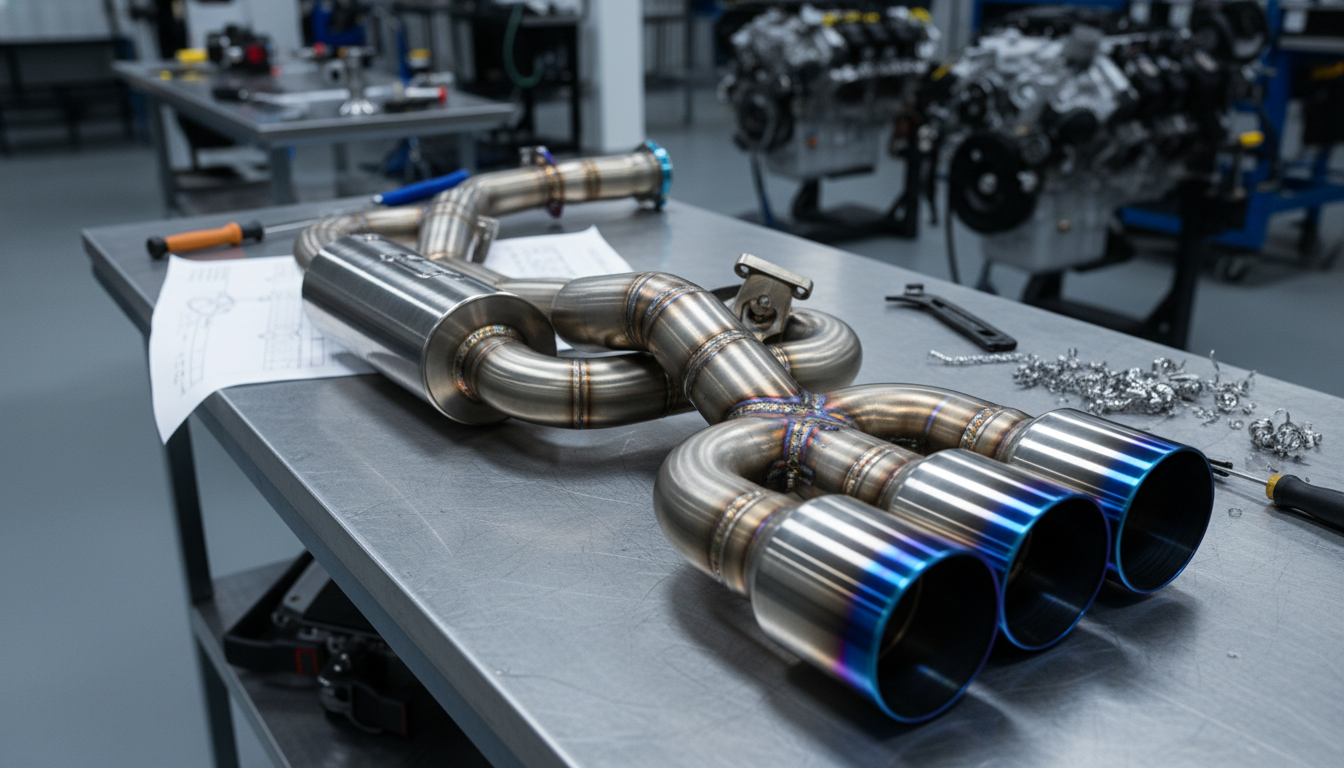Exceptional strength-to-weight ratio, superior corrosion resistance, and stable high-temperature performance. Providing reliable titanium solutions for your next-generation vehicles, engines, and structural components.
Request a Quote
Titanium alloys are increasingly recognized as a transformative material for high-performance and mainstream automotive applications. Our products fully leverage these advantages, providing reliable solutions for global automotive manufacturers.
Density is only 60% of steel, yet comparable in strength. Achieve structural weight reduction, significantly improving acceleration, braking, and handling, and extending EV battery range.
Highly resistant to road salts, humid environments, and corrosive exhaust gases. Ensures the long-term reliability of exhaust systems and chassis components, reducing maintenance costs.
Titanium alloys maintain their mechanical strength and integrity at elevated temperatures, making them ideal for engine internal and exhaust components.
Exhibits excellent fatigue strength and wear resistance, increasing the reliability and service life of critical moving parts like engine connecting rods and valves.
The unique damping characteristics of titanium contribute to reducing Noise, Vibration, and Harshness levels, leading to a quieter and more comfortable ride experience.
We provide a wide range of automotive-grade titanium alloys that comply with international standards, meeting diverse application requirements:
| Alloy Grade | Key Characteristics | Typical Applications |
|---|---|---|
| CP Ti (Grades 1, 2) | Excellent ductility and corrosion resistance. | Exhaust systems, heat shields. |
| Ti-6Al-4V (Grade 5) | Most commonly used high-strength alloy, excellent balance of strength and lightweight. | Connecting rods, valves, suspension components. |
| Ti-3Al-2.5V (Grade 9) | Moderate strength, good cold formability, excellent corrosion resistance. | Hydraulic lines, exhaust components. |
| TiAl (Gamma Titanium Aluminide) | Excellent high-temperature performance and low density. | Turbocharger impellers. |
We can provide customized titanium material specifications and certifications according to your specific requirements.
Consult Our ExpertsFrom high-performance racing to mainstream passenger vehicles, our titanium products have been widely adopted by leading global automotive manufacturers.
Reducing the mass of the engine's reciprocating parts is a direct way to improve engine performance and efficiency.
Valves: Reduce mass by 30% to 40%, increasing engine speed and fuel efficiency.
Connecting Rods: Reduce mass by 15% to 20%, significantly reducing inertia forces.
Valve Spring Retainers and Springs: Improve engine responsiveness and reliability.
Turbocharger Impellers: Utilize TiAl for lightweighting and high-speed operation.
Titanium alloy exhaust systems are ideal for weight reduction and optimizing vehicle weight distribution.
Exhaust Pipes and Mufflers: Achieve up to 40% weight reduction compared to steel.
Heat Shields: Utilize titanium's low thermal conductivity for effective heat management.
Reducing unsprung mass is crucial for enhancing vehicle handling and ride comfort.
Coil Springs: Achieve 60% to 70% weight savings compared to steel springs.
Control Arms and Linkages: Reduce unsprung mass, improving suspension response.
Fasteners: High-strength titanium bolts and nuts for critical connections.
We understand the automotive industry's demand for quality and cost-effectiveness. Our manufacturing processes strictly adhere to international standards, ensuring every batch of products maintains full traceability and maximum reliability.
ISO 9001:2015: Quality Management System
IATF 16949: Automotive Quality Management System (Applicable for automotive parts)
EN 10204 3.1/3.2: Material Certification Standards
All products can be provided with material certifications and traceability documentation as required by customers.
Vacuum Arc Remelting (VAR): Ensures titanium purity and uniformity.
Precision Forging and Rolling: Optimizes grain structure and mechanical properties.
Near-Net-Shape Technology: Minimizes material waste and reduces costs.
Precision Machining: Meets complex component dimensions and surface requirements.
Bars, plates, tubes, forgings, and other forms.
Near-Net-Shape precision machining reduces customer post-processing costs.
Small batch to large-scale production with flexible delivery schedules.
Technical support and application consulting.
Contact our automotive experts today to get customized titanium quotes and technical support. We are committed to providing the most reliable and cost-effective titanium alloy solutions for your critical projects.